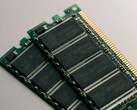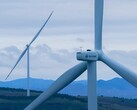A new project in Australia is working out how to turn organic waste — including biosolids from wastewater treatment and household garden waste — into a key component for the next generation of batteries. This project is a collaboration between RMIT University, Deakin University, and Barwon Water. It will involve turning organic waste into biochar.
While biochar — a charcoal-like substance made from heating organic matter in oxygen-deprived conditions — is already known for its use in soil improvement, this new project will also explore a different application. The project will research how biochar could be used in sodium-ion batteries to improve cost-effectiveness and sustainability.
The project will focus on studying the potential of biochar as the anode material inside sodium-ion batteries. If the team achieves their goal, sodium-ion batteries, which are already cheaper than lithium-ion batteries, could become even cheaper.
Biochar is looking promising as a next generation battery material, and through this project we’ll continue to explore what biochar composition will enhance battery performance. — Associate Professor Nolene Byrne of Deakin University.
The project is part of a broader effort by Barwon Water to build a circular economy in the Geelong region. The initiative aims to turn approximately 60,000 tonnes of biosolids and other organic waste into sustainable products annually. The work is funded by a $50 million grant from the Australian Government’s Trailblazer Universities Program.
Buy the ECOFLOW DELTA 3 Portable Power Station on Amazon ($519).
Source(s)
Image source: Emma Smith



















